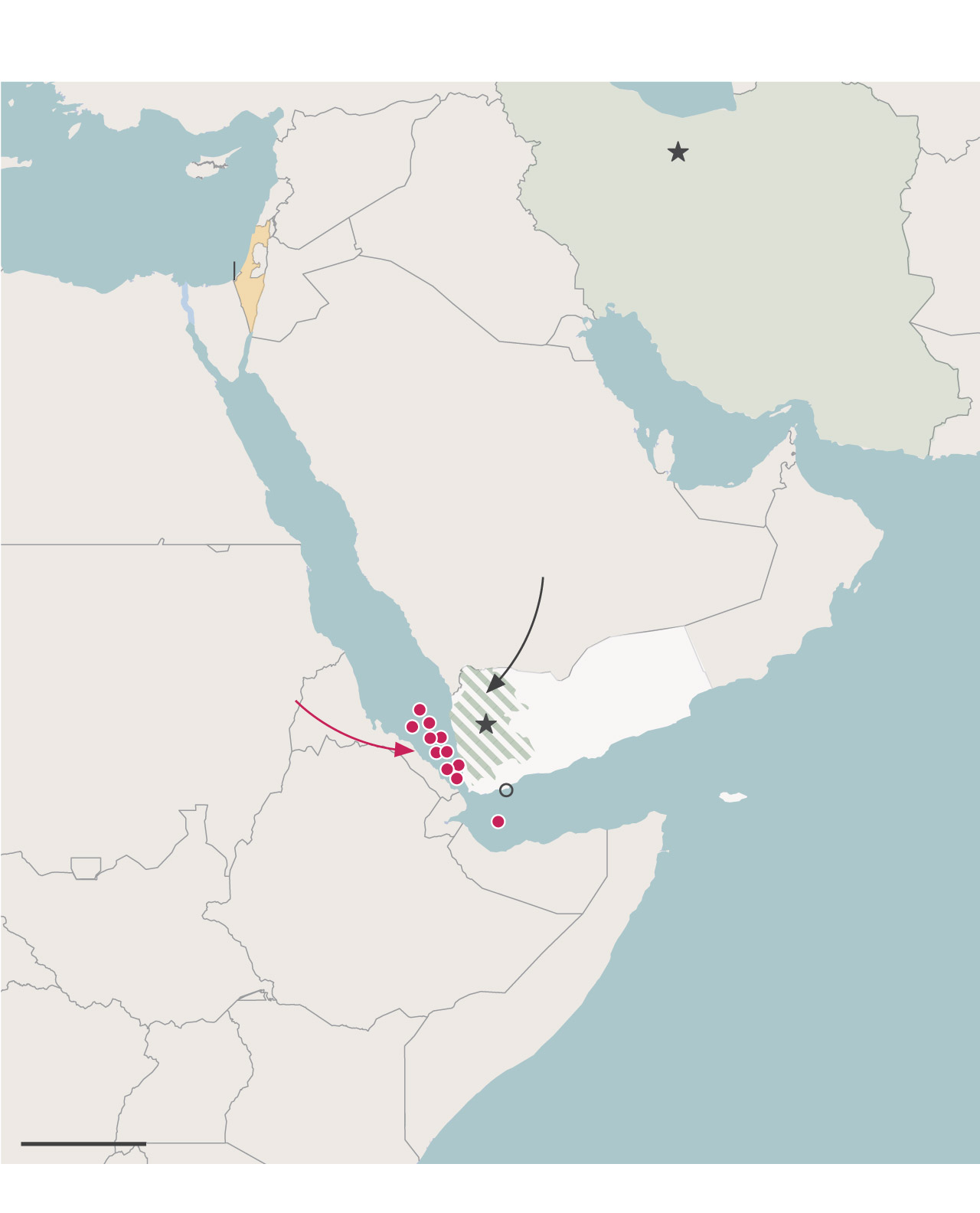Trump's Houthi Truce: A Skeptical Look At The Shipping Industry's Response

Table of Contents
Initial Industry Reactions to the Truce
The announcement of the truce sparked a wave of reactions within the shipping industry, characterized by a mixture of hope and apprehension.
Cautious Optimism and Market Volatility
The initial market response was positive, reflecting a cautious optimism among stakeholders. Several shipping indices showed a slight uptick, indicating improved investor sentiment.
- The Baltic Dry Index, a key indicator of global shipping activity, experienced a modest rise in the days following the truce announcement. While not dramatic, this suggested a potential increase in vessel utilization as the risk of disruption decreased.
- Maritime insurance premiums, which had skyrocketed due to the conflict's risk to vessels transiting the Red Sea and Bab el-Mandeb Strait, showed signs of a slight reduction. This was a significant factor, as higher premiums significantly impact the overall cost of shipping.
- The potential for increased trade volume between Yemen and the global market fueled further optimism. The truce, if held, could unlock considerable economic activity, boosting demand for shipping services. This potential surge in demand was reflected in the cautiously optimistic outlook of many shipping analysts.
Concerns Regarding Enforcement and Sustainability
Despite the initial positive market response, significant concerns lingered regarding the truce's long-term viability and enforcement.
- The lack of transparency surrounding the agreement's details fueled skepticism. The specifics of Houthi compliance mechanisms were unclear, raising questions about the truce's enforceability.
- The historical precedent of broken ceasefires in Yemen cast a long shadow over the optimism. The conflict's inherent complexity and the multitude of actors involved made a sustained peace unlikely in the eyes of many industry experts.
- These concerns impacted investor confidence. The uncertainty surrounding the truce's sustainability made many shipping companies hesitant to commit significant resources or investments to increased activity in the region. This cautious approach highlighted the prevalence of geopolitical risk assessment in the shipping industry's decision-making.
Impact on Specific Shipping Routes and Trade Lanes
The truce, or rather, the uncertainty surrounding its longevity, significantly impacted specific shipping routes and trade lanes.
The Bab el-Mandeb Strait and Red Sea Traffic
The Bab el-Mandeb Strait, a crucial waterway connecting the Red Sea to the Gulf of Aden, is a critical transit point for global shipping. The conflict in Yemen had severely disrupted traffic through this strategic chokepoint.
- Data from before and after the truce revealed fluctuating traffic volumes. While there was a slight increase immediately following the announcement, the numbers remained below pre-conflict levels, indicating ongoing concerns about security.
- The potential for maritime piracy and other security risks remained a major concern. The instability in Yemen presented opportunities for illicit activities, deterring some shipping companies from utilizing the Bab el-Mandeb Strait.
- Specific cargo types, like oil tankers and container ships carrying high-value goods, were particularly affected. The higher risk associated with transit through the Strait led to increased insurance costs and a preference for alternative routes.
Alternative Routes and Their Economic Implications
The fragility of the truce led many shippers to consider alternative, albeit longer, routes to avoid the perceived risks associated with the Red Sea.
- The Cape of Good Hope route, circumnavigating the African continent, became a more attractive option for some vessels, despite the significant increase in transit time and fuel costs.
- Utilizing the Suez Canal remained a possibility for many, although the added cost and the potential for delays still presented considerable logistical challenges.
- These alternative routes significantly increased shipping costs, impacting the overall price of goods and the competitiveness of international trade. The longer transit times also affected supply chains and delivery schedules, further highlighting the economic consequences of the geopolitical uncertainty.
The Role of Insurance and Risk Assessment in the Shipping Industry's Response
The shipping industry's response to Trump's Houthi truce was heavily influenced by the role of insurance and risk assessment.
Increased Scrutiny and Dynamic Risk Profiles
Insurance companies responded to the ongoing instability in Yemen by carefully adjusting their risk assessments and modifying their insurance policies.
- War risk insurance premiums, already high due to the conflict, remained elevated even after the truce announcement. Insurance companies continued to closely monitor the situation, making rapid adjustments to premiums as the situation evolved.
- The increased use of risk modeling and predictive analytics became crucial in assessing the dynamic risk profiles of various shipping routes. Insurance companies utilized sophisticated data analysis to better understand and quantify the risks involved.
- Changes in insurance coverage and policy terms reflected the cautious approach adopted by insurers. Some companies introduced stricter clauses and limitations, reflecting their concern about the ongoing instability in the region.
Conclusion
Trump's Houthi truce presented a complex scenario for the shipping industry. While initial reactions demonstrated cautious optimism, lingering concerns about enforcement, sustainability, and the overall geopolitical climate led to a more skeptical approach. The impact on specific shipping routes, insurance premiums, and logistical costs highlights the industry's need for constant reassessment of risk. Continued monitoring of the situation in Yemen and the effectiveness of any future ceasefires is crucial for navigating the complexities of this volatile region and ensuring the safe and efficient movement of goods via crucial shipping lanes. Understanding the implications of Trump's Houthi truce and similar political developments is vital for anyone involved in international shipping and global trade.

Featured Posts
-
 Arrestan A Universitaria Transgenero Por Usar Bano Femenino El Caso Que Desata El Debate
May 10, 2025
Arrestan A Universitaria Transgenero Por Usar Bano Femenino El Caso Que Desata El Debate
May 10, 2025 -
 Chat Gpt And Open Ai Facing Ftc Investigation Key Questions Answered
May 10, 2025
Chat Gpt And Open Ai Facing Ftc Investigation Key Questions Answered
May 10, 2025 -
 Unlocking The Nyt Spelling Bee April 1 2025 Strategy And Answers
May 10, 2025
Unlocking The Nyt Spelling Bee April 1 2025 Strategy And Answers
May 10, 2025 -
 Dijon Valendons Developpement D Un Vignoble De 2500 M
May 10, 2025
Dijon Valendons Developpement D Un Vignoble De 2500 M
May 10, 2025 -
 Wynne Evans Strictly Scandal A Turning Point With Fresh Evidence
May 10, 2025
Wynne Evans Strictly Scandal A Turning Point With Fresh Evidence
May 10, 2025
